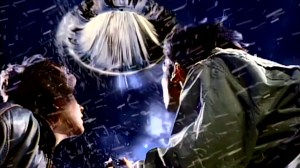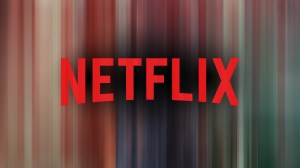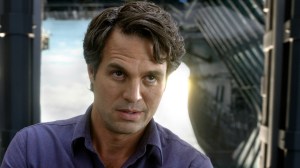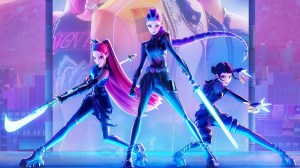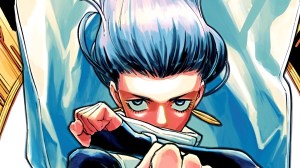Nobody can agree on anything within comics.
Videos by ComicBook.com
Whether you prefer Alan Moore or Grant Morrison; reckon Archie loves Veronica and not Betty; or remain convinced that Wonder Man beats Wonder Woman (for some reason) – the one thing we can guarantee is that somebody disagrees with you.
But while it’s fun to argue…some debates simply must be resolved.
And so to deal with the greatest controversies to ever hit the printed page, we’ve formally set up a Comic Book Court to finally reach a definitive verdict on the cases you’ve always wanted closure for.
Each court session will see Christian Hoffer take on a case against Steve Morris, as they go back and forth over some of the biggest issues in the history of comics. Also…some silly ones.
With that in mind…
Will everyone please rise for “The People Vs. The Multiverse” AKA “Should superhero universes use alternate universes anymore?”
The Argument For Alternate Universes (Christian)

The history and continuity of a shared universe can be both a blessing and a curse. Continuity is a great storytelling tool, a rock solid foundation on which many creators build great stories. In the worlds of Marvel and DC, many of these superheroes are so well-defined, creators can easily slide into their worlds like a familiar glove. Fans don’t need an introduction to these characters, because there’s already decades of backhistory that defines them.
But as more creators build upon that continuity, it becomes less of a foundation and more a structure that confines. How many times have you seen a superhero fan nitpick at a story because it contradicts a comic published decades ago? How many times have creators needed to retcon or “fix” the past in order to make a current story work? At some point, it becomes difficult for creators to put their mark on characters, if only because so many creators have made their own marks before them.
That’s why alternate universes are such a fantastic storytelling tool, especially for superhero publishers like DC or Marvel. If a creator wants the freedom to tell a story about an existing character without needing to worry about the nuances of the past, they can tell that story within an alternate universe. The foundation of the world is still there, but creators can build something new on top of it instead of simply adding floors to an existing building.
Of course, alternate universes only work if the readers are already familiar with a character and can recognize the differences between the mirror universe and the original. The contrast between the original and alternate universes is an extra storytelling device. For instance, the horrors of the Age of Apocalypse books were punctuated by how broken the X-Men were compared to their original counterparts.
Alternate universe are also great for deconstructing characters without damaging them for future creators. A story like All-Star Superman is considered a quintessential Superman story, in part because it took a deep dive into Superman’s motivations, his character, and what made him different from other superheroes. All-Star Superman worked because there was so much history built up around Superman, which made it more satisfying when Grant Morrison and Frank Quitely dug into those characters and discovered their cores.
Plus, alternate universes are great testing grounds, ways to see if an idea or character “works” before plugging them into continuity. Harley Quinn was born out of an alternate universe (the world of Batman: The Animated Series). So was Miles Morales, the “Ultimate” Spider-Man. Even stories that originally existed outside continuity (like the controversial Batman: The Killing Joke or Kingdom Come) were added to canon because they were so defining to their character.
I think the strongest argument for alternate universes comes from this week’s announcement that Mariko Tamaki and Joelle Jones, two of the best creators in all of comics were going to make a new Supergirl comic set outside of DC continuity. Thanks to that comic existing in an alternate universe, Tamaki and Jones have the freedom to create a new, modern and defining version of Supergirl without the restrictions set by other creators.
The Argument Against Alternate Universes (Steve)

I absolutely hate alternate universes. Designed to offer us a ‘different’ look at the characters we thought we knew, at this point the idea has become so overused that the possibilities have become too endless.
Where once an alternate universe offered a flip of the coin, the reverse image of the character we knew; comics moved to a six-sided dice, then a 52-card deck, and then beyond. At this point an “alternate” character can be literally anything, and it makes the whole thing feel worthless. An alternate reality version of Batman could be happy, sad, grumpy, heroic, male, female, old, a child, a robot, a pirate, a unicorn, a civilian, a president.
When Batman can be literally anything, what makes ‘our’ Batman the one we should be reading about, other than tradition or stubbornness? What happens when his voice has melted into this faceless wail of narrative noise, and the motive and character of Batman is so lost? Rather than being a carefully constructed product of decades of writers and artists bringing their most to the mythos and narrative of the character, the infinite alternate universes show him to just be a random act of chance, where nothing is out of character for him anymore. With one Superman in the DC Universe, you have a singular vision of humanity, heroism, truth and justice and all those things. With fifty supermen knocking around, how are we meant to centralise ourselves?
Alternate universes are a well that comics have fallen down time and time again. By this point modern comics have dived down so many wells that they broke through the floor, got hopelessly lost, and have had to spend the last few decades desperately trying to work out which way is up again.
Marvel, for example. Marvel have brought us countless alternate universes, to the extent that the their last few years have been devoted to trying to destroy everything and get things settled again. The Age of Apocalypse Universe was destroyed, as were thousands of alternate Spider-Men – and then there was Secret Wars, which annihilated the Ultimate Universe, apart from the bits that it didn’t. Alternate universes not only dilute the core concept of a shared universe – it shatters the ability of the comics to understand what their purpose is to begin with.
Used sparingly, an alternate universe can mirror our society and tell us stories which offer us reflection. A black Spider-Man is a story which is well worth telling, and was done through the protection of an alternate universe. There are ways it can work. There’s reflection, a chance to see a mirror-image which defines the original work.
But when they’re used constantly by the same few writers – as they have been – alternate universes turn comics continuity into this funhouse mirror room where every turn distorts your perspective and gives you no way to focus. When I read a comic, I want to be transported into the world, and into the narrative – and not to turn each way and see only my own reflection staring back at me, breaking the connection I was trying to make with the world of the comic. Alternate universes have lost their limits, and as a result the comics have lost their way.
Closing Statements

For those unfamiliar with Comic Book Court, each side will get a brief chance to make a final closing statement to sway the jury (that’s you!) to their side:
Christian’s Closing Statement:
Steve’s argument basically boils down to that he doesn’t like the way alternate universes are often used in superhero comics. I’m not going to disagree with that entirely. Alternate universe stories (in any medium) only works when the original universe is so established. There’s a reason why The Flash television show waited three seasons before adapting “Flashpoint” or why Star Trek didn’t introduce the Mirror Universe until the second season.
But I maintain that the alternate universe concept is a pretty powerful tool for storytelling within a shared universe. As Steve puts it, they’re a “funhouse mirror” of sorts, but in those distortions we can see the real truth behind a character.
Steve’s Closing Argument:
I think of alternate universes as being this punchline to a joke. They answer a question about a character, and subvert expectations. But there are only so many answers to a joke before your responses make no sense, lose their impact, and are just plain confusing. Alternate universes make things SO complicated, and now they aren’t even giving us a narrative purpose. And think – if long-term fans are confused by these details, what are new readers going to think? Alternate universes are half the reason continuity is so impossible to work out, and why people give up trying superhero comics. Ban them all, get back to defining a single version of each character — and maybe we can come back to this ‘alternate universe’ concept in a decade or two, once things have had a chance to settle for a while. Then the punchlines might actually land?
So which side do you think made the better argument? Vote in the poll before to decide!

